AI가 고용 환경을 어떻게 변화시키고 있는지 자세히 살펴보겠습니다. AI의 광범위한 도입은 새로운 역할과 HR 애플리케이션을 창출하고 있습니다.
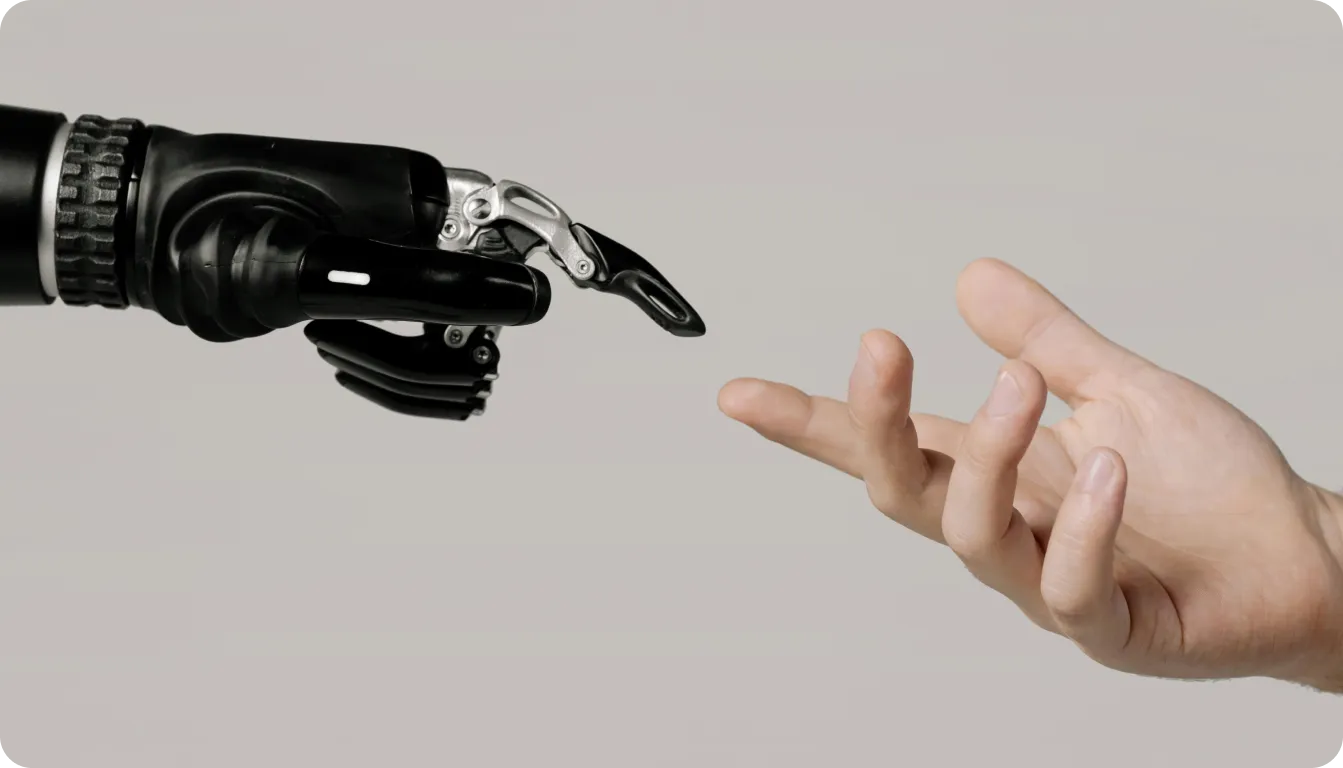
AI가 고용 환경을 어떻게 변화시키고 있는지 자세히 살펴보겠습니다. AI의 광범위한 도입은 새로운 역할과 HR 애플리케이션을 창출하고 있습니다.

인공지능(AI) 붐은 간접적으로 다양한 산업 분야에서 새로운 일자리 기회의 급증으로 이어졌습니다. 이전에는 AI가 일상적인 비즈니스에 미치는 영향에 대해 살펴보았지만, 그 영향력은 훨씬 더 깊습니다. 기술, 금융 및 지속 가능성과 같은 분야에서 AI는 워크플로우를 변화시킬 뿐만 아니라 새로운 유형의 직업과 기술을 위한 길을 열고 있습니다. 기업이 이러한 발전에 적응함에 따라 AI 기술에 능숙한 인력에 대한 수요가 증가하고 있습니다.
실제로 AI는 2025년까지 전 세계적으로 약 9,700만 개의 새로운 일자리를 창출할 것으로 예상됩니다. 생산성을 높이고 반복적인 작업을 대체함으로써 AI는 고용 시장을 변화시키고 있습니다. 이 기사에서는 AI가 새로운 역할을 창출하고 효율성을 개선하여 일자리를 어떻게 재정의하는지 살펴볼 것입니다. 또한 업무 자동화에서 AI 애플리케이션이 이러한 새로운 역할에 대한 필요성을 어떻게 주도하는지, 인재 관리의 AI 도구가 미래의 인력을 고용하고 지원하는 데 어떻게 도움이 되는지 자세히 살펴보겠습니다. 그럼 시작해 보겠습니다!
기업은 워크플로우 내에서 AI를 활용하여 반복적인 작업을 처리하고 더욱 원활하게 실행할 수 있습니다. 머신 러닝 및 자연어 처리(NLP)와 같은 AI 분야는 데이터 분석에서 고객 지원에 이르기까지 모든 것을 지원할 수 있습니다. 예를 들어, 물류에서 AI는 재고를 최적화하고 공급망을 실시간으로 관리하는 데 사용되어 시간이 많이 소요되는 작업에 대한 사람의 개입을 줄일 수 있습니다. 이러한 기능을 수행함으로써 AI는 또한 직원이 영향력이 큰 작업에 집중할 수 있도록 해줍니다.
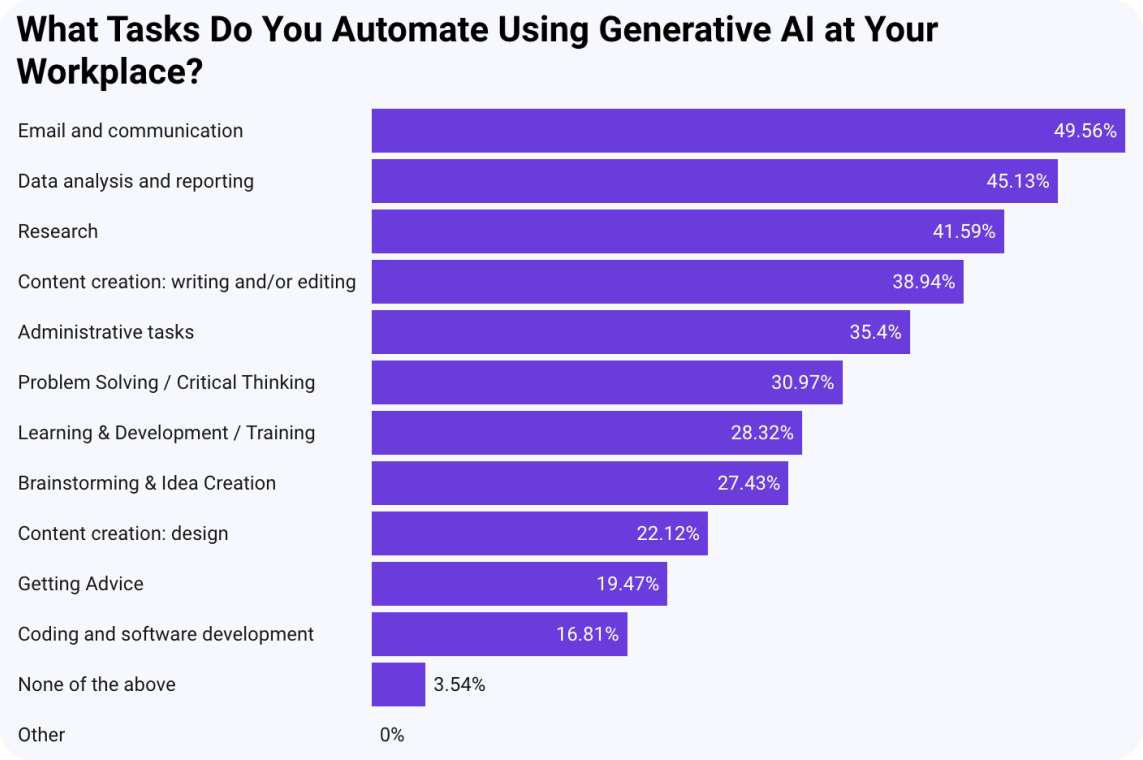
결과적으로 AI 기반 일자리에 대한 요구를 촉진하는 주요 요인은 기존 워크플로우를 재편하는 AI 시스템을 관리하고 최적화하려는 수요가 증가하고 있기 때문입니다. 제조를 예로 들어 보겠습니다. 컴퓨터 비전을 갖춘 AI 기반 로봇은 정밀하게 많은 조립 라인 작업을 처리하는 데 사용되고 있습니다.
제품을 검사하고, 결함을detect , 실시간으로 품질 관리를 보장할 수 있습니다. 그러나 이러한 시스템을 원활하게 운영하고, 발생하는 문제를 해결하고, 이러한 첨단 기계에서 수집한 생산 데이터를 분석하려면 숙련된 기술자 및 엔지니어 팀이 여전히 필수적입니다.
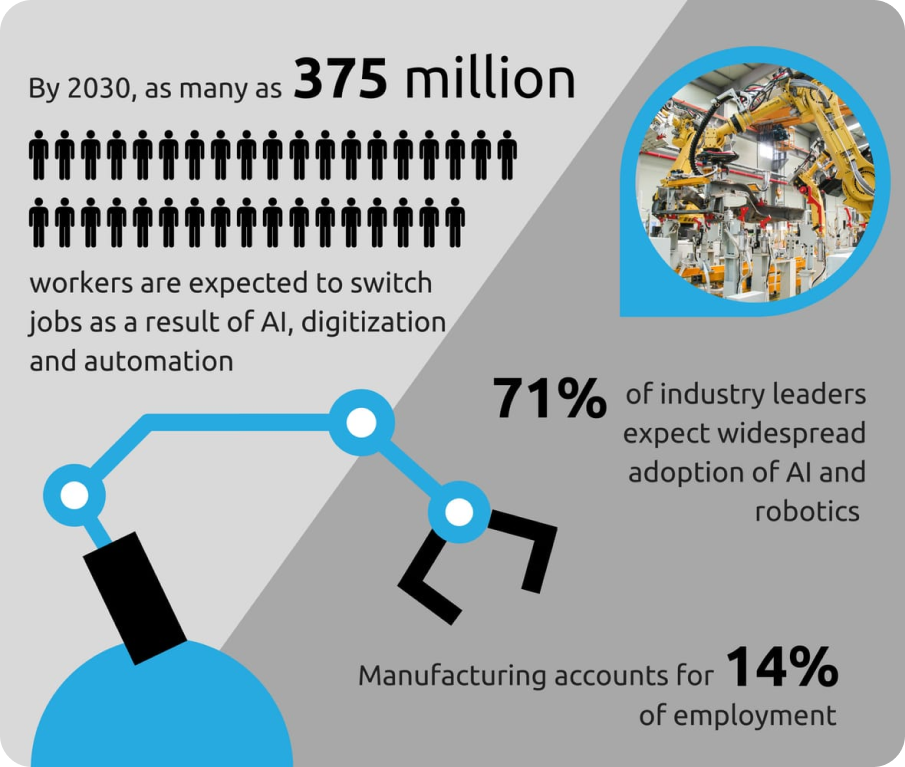
AI 기반 일자리는 AI 혁신을 지원, 모니터링 및 개선하는 다양한 역할을 포함하도록 확장되고 있습니다. AI가 많은 산업의 필수적인 부분이 됨에 따라 기업은 AI 시스템을 구축, 관리 및 개선할 수 있는 사람을 찾고 있습니다. 이러한 변화로 인해 데이터 과학자, AI 트레이너 및 머신 러닝 엔지니어와 같이 기술 기술과 산업 전문 지식을 결합한 새로운 직책이 생겨났습니다.
AI의 영향력이 커짐에 따라 이러한 기술이 책임감 있게 사용되도록 보장하기 위해 AI 규정 준수 책임자 및 윤리 컨설턴트와 같이 윤리 및 규정 준수에 초점을 맞춘 역할에 대한 필요성도 커지고 있습니다. 동시에 AI 지원 작가, 헬스케어 AI 전문가 및 마케팅 전략가와 같이 AI 전문가가 아니어도 AI를 적용하는 역할도 있습니다. 이러한 전문가는 AI 도구를 사용하여 업무를 개선합니다.
다음은 산업 전반에 걸쳐 새롭게 떠오르는 AI 기반 역할의 몇 가지 다른 예입니다.
연구에 따르면 AI 및 머신러닝 전문가와 같은 직종이 가장 빠르게 성장하고 있으며, 이는 기술 및 데이터 중심의 커리어로의 전환을 나타냅니다. 혁신과 데이터 기반 솔루션에 집중하는 산업이 이러한 추세를 주도하며 AI 관련 분야에서 새로운 기회를 창출하고 있습니다. 다음으로, 이러한 분야가 AI 기반 일자리의 성장을 어떻게 이끌고 있는지 살펴보겠습니다.
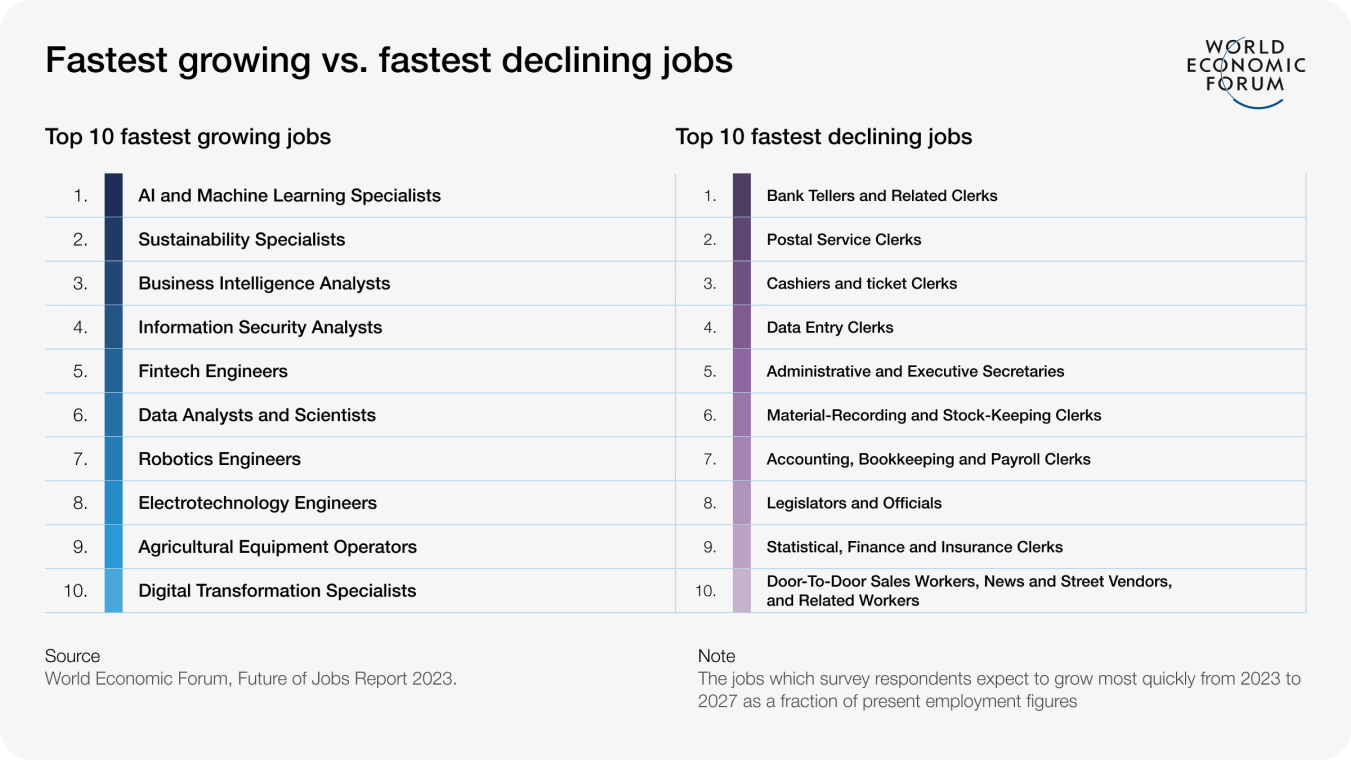
AI 덕분에 기술 산업은 오늘날 가장 급진적인 변화를 겪고 있는 분야 중 하나입니다. AI는 이론적인 개념에서 기술 운영의 핵심 부분으로 발전했습니다. 이제 백엔드 개발에서 고객 대면 앱에 이르기까지 모든 것에 영향을 미칩니다. 결과적으로 많은 기술 직무에서 기존의 컴퓨터 프로그래밍 기술과 전문적인 AI 지식이 모두 필요합니다.
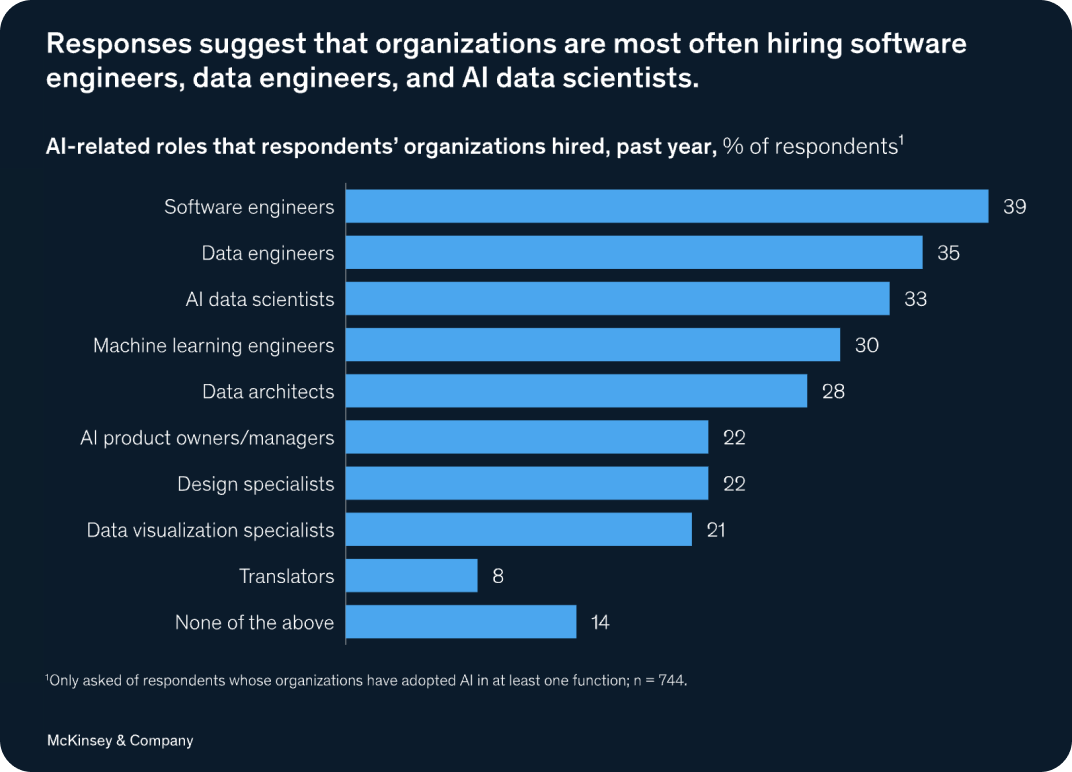
이러한 변화가 특히 두드러지는 분야는 컴퓨터 비전 분야입니다. 컴퓨터 비전은 컴퓨터가 시각적 데이터를 기반으로 분석하고 의사 결정을 내리는 전문 분야로, 의료와 같은 분야에서 중요하게 활용되고 있습니다. 예를 들어, 의료 영상 분야에서 컴퓨터 비전 모델은 다음과 같습니다. Ultralytics YOLO11 와 같은 컴퓨터 비전 모델은 종양과 같은 문제를 기존 방법보다 더 정확하게 detect 데 도움이 될 수 있습니다. 이 분야에서 일하는 전문가들은 코딩 기술과 머신러닝, 신경망, 데이터 처리에 대한 탄탄한 이해가 모두 필요합니다.
다음은 컴퓨터 비전과 관련된 AI 기반 일자리의 몇 가지 예입니다.
AI에 의해 빠르게 변화하고 있는 또 다른 분야는 금융 부문입니다. 수동 프로세스가 자동화되고 고급 데이터 분석을 사용하여 통찰력을 수집하고 있습니다. 이제 AI는 사기 탐지, 신용 점수 평가 및 투자 예측과 같은 작업에 매우 중요합니다. 마찬가지로 AI 기반 챗봇 및 고객 서비스 도구는 고객 상호 작용을 더 빠르고 개인화하고 있습니다. 이러한 애플리케이션을 지원하려면 데이터 모델링, 알고리즘 개발 및 규제 준수와 같은 분야에서 AI 지식을 갖춘 금융 전문가가 필요합니다.
사기 탐지 및 위험 분석을 위한 예측 모델을 구축하는 금융 데이터 과학자, AI 알고리즘을 적용하여 거래 및 투자 패턴을 식별하는 양적 금융 엔지니어와 같은 역할이 점점 더 중요해지고 있습니다. AI 규정 준수 분석가는 AI 시스템을 모니터링하여 규정 준수를 보장하는 데에도 필수적입니다. 이들은 AI 기반 기술을 금융에 도입하여 보다 정확하고 효율적이며 안전한 의사 결정을 가능하게 합니다.
AI는 조직이 탄소 발자국을 줄이고 친환경적인 관행을 채택하기 위해 노력함에 따라 지속 가능성 및 환경 관리 분야에서 더 많은 일자리를 창출하고 있습니다. AI 도구는 이제 온실 가스 배출 추적, 에너지 사용 최적화 및 자원 효율성 향상과 같은 주요 작업을 지원하고 있습니다. 결과적으로 환경 과학과 AI에 모두 능숙한 전문가에 대한 수요가 증가하고 있습니다. 오염 패턴을 식별하기 위해 기후 데이터를 분석하는 환경 데이터 과학자가 좋은 예입니다. 마찬가지로 지속 가능성 분석가는 AI를 사용하여 에너지 효율성을 개선하고 AI 기반 농학자는 머신러닝을 적용하여 지속 가능한 농업 관행을 장려합니다.
흥미롭게도 AI 자체를 사용하여 새로운 AI 기반 직무 요구 사항을 빠르고 효율적으로 충족할 수 있습니다. 채용 프로세스의 일부를 자동화함으로써 AI 도구는 수많은 이력서와 지원서를 검토하여 특정 역할에 적합한 기술과 경험을 가진 후보자를 식별할 수 있습니다. 인재 확보에 AI를 사용하면 채용 프로세스 속도가 빨라지고 각 직위에 더 적합한 인재를 확보하는 데 도움이 됩니다.
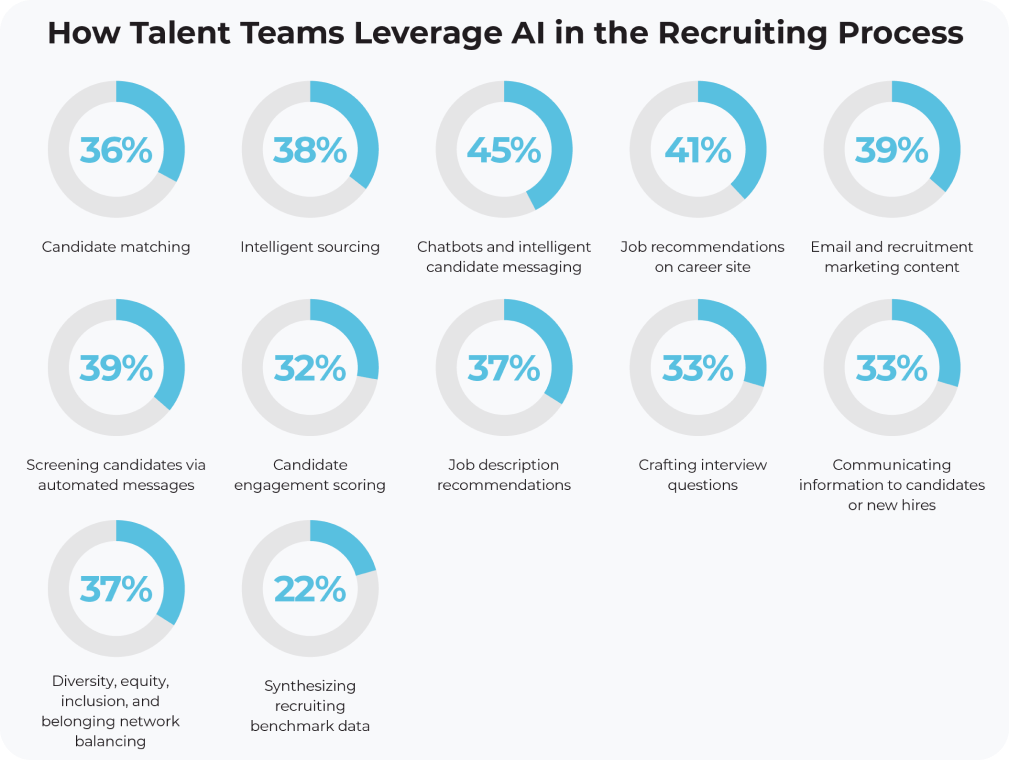
특히 AI는 다양한 데이터 포인트를 분석하여 후보자의 자격 및 문화적 적합성을 기반으로 역할을 매칭하는 데 사용할 수 있습니다. 이는 채용 결정에 영향을 미칠 수 있는 편향 가능성을 줄여줍니다.
후보자가 채용되면 AI는 개발 및 참여를 지원하는 데 중요한 역할을 계속합니다. AI 도구는 직원 성과에 대한 지속적인 피드백을 제공하여 관리자와 직원 모두가 강점과 성장 영역을 식별하는 데 도움을 줄 수 있습니다. 또한 개인의 경력 목표에 특화된 맞춤형 교육 경로를 만들어 기술 개발을 촉진할 수 있습니다.
AI가 일자리를 대체한다는 논의에도 불구하고 현실은 AI가 새로운 기회를 창출하고 있다는 것입니다. AI는 일상적인 작업을 자동화하고 생산성을 향상시켜 기술, 금융 및 지속 가능성과 같은 분야에서 혁신적인 역할을 창출했습니다.
그러나 개인 정보 보호 및 윤리적 의미와 관련된 우려가 여전히 존재하므로 AI의 책임감 있는 사용이 점점 더 중요해지고 있습니다. 산업계가 AI를 채택함에 따라 이러한 기회와 과제의 균형을 맞추는 것이 필수적입니다. 신중한 통합을 통해 AI는 인간의 창의성을 지원하고 인력 전반에 걸쳐 긍정적인 변화를 주도하는 유연한 도구가 될 수 있습니다. 윤리적 고려 사항을 염두에 두면서 AI의 잠재력을 수용하면 기술과 인적 자원이 효과적으로 협력할 수 있습니다.
AI에 대해 더 자세히 알고 싶으신가요? 저희 커뮤니티와 연결하세요! GitHub 저장소를 탐색하여 저희가 헬스케어 및 농업과 같은 다양한 산업 분야에서 혁신적인 솔루션을 만들기 위해 AI를 어떻게 사용하고 있는지 자세히 알아보세요.